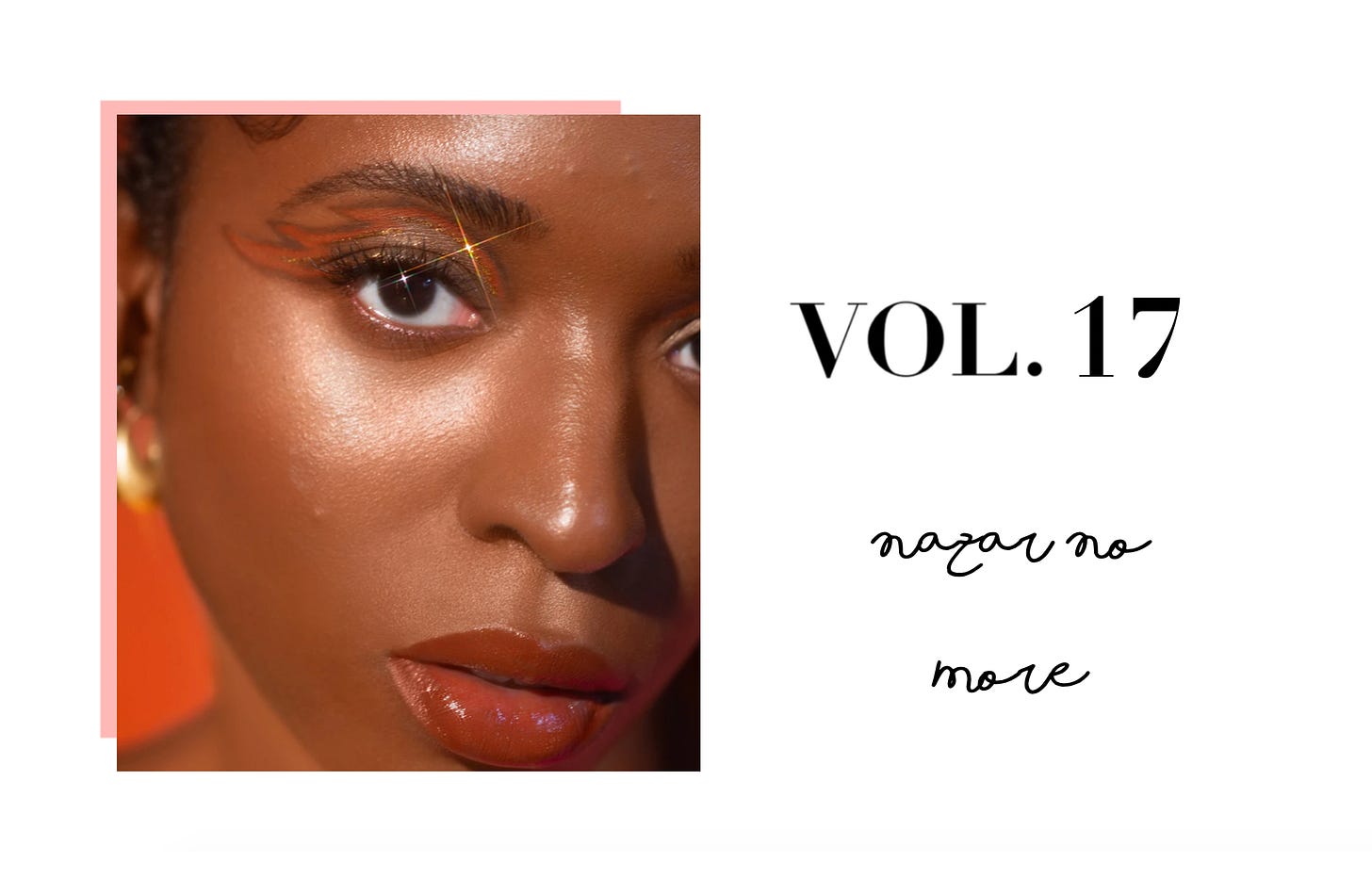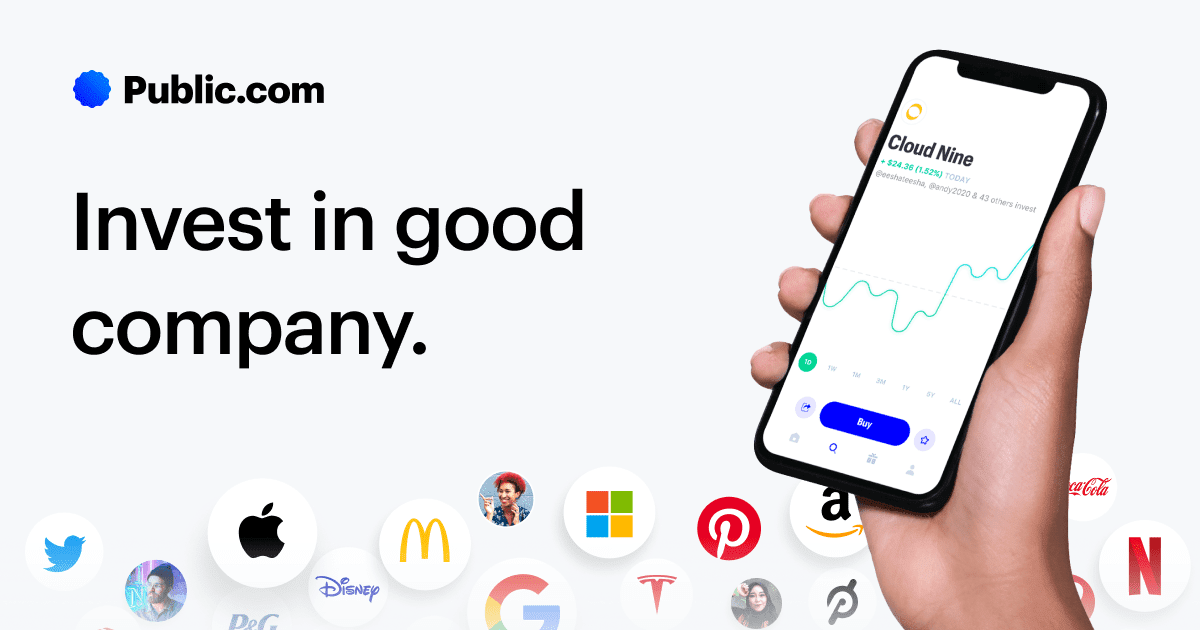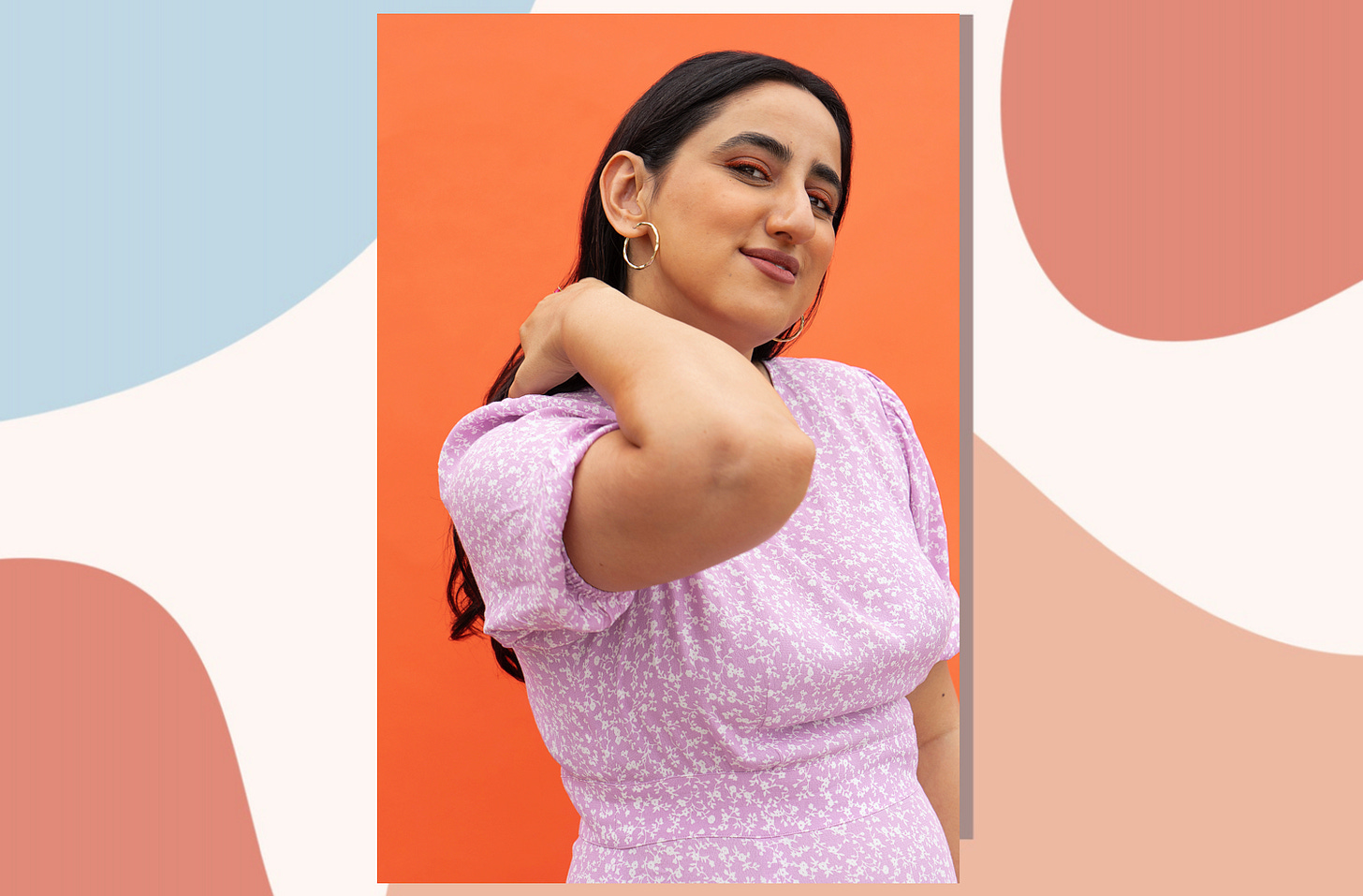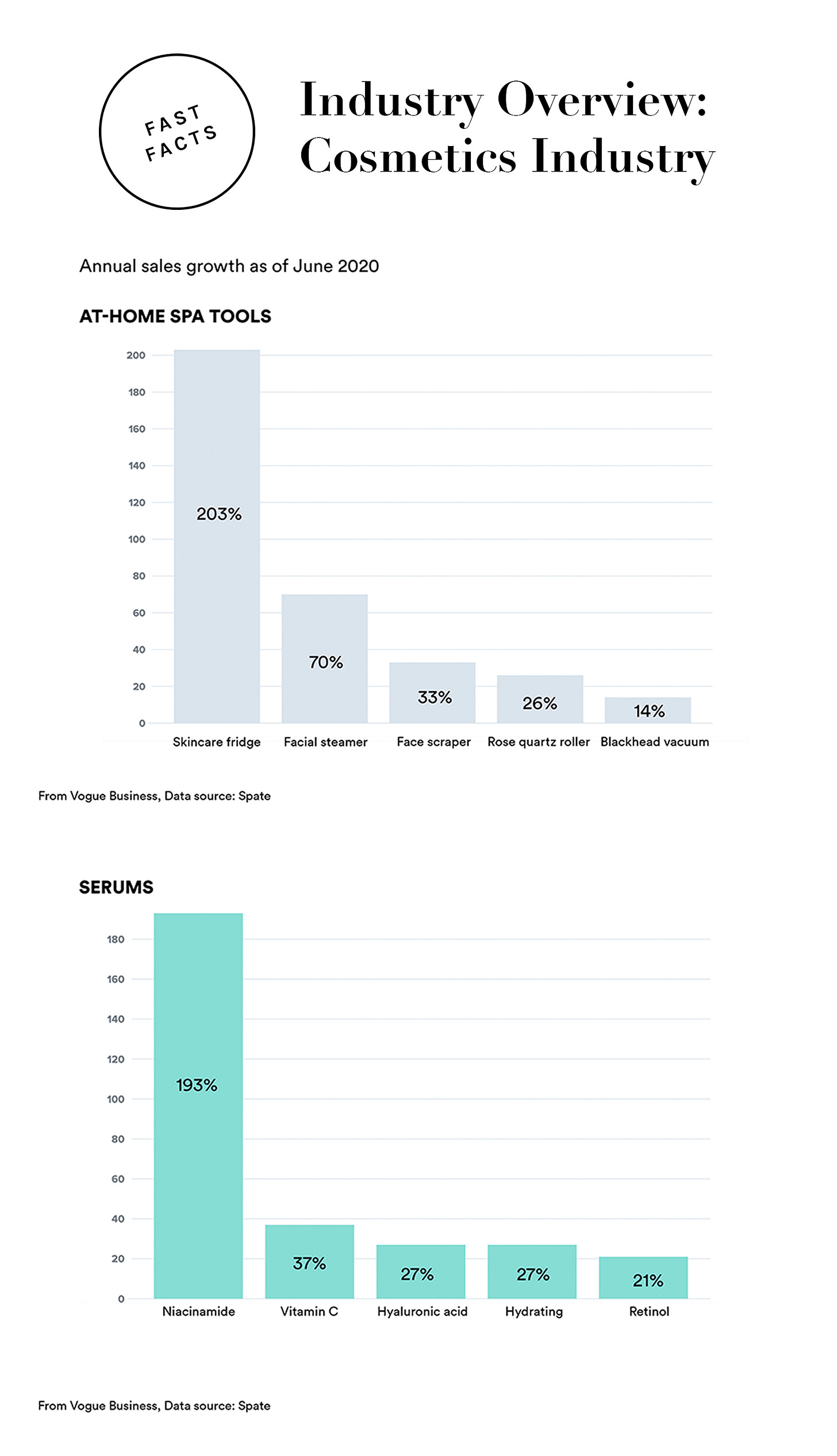Hello, CWBS!
Midterms season is officially here, but don’t worry – take a break with our latest edition of The Scope. In this edition, we’re featuring the work of the incredible Priyanka Ganjoo of Kulfi Beauty, as seen in Vogue and Allure. Priyanka’s journey as a consultant at BCG and MBA student at Harvard Business School turned entrepreneur is absolutely incredible, but the principles of authentic diversity and inclusion at the heart of Kulfi are what make the brand an all-star newcomer to the beauty scene. Happy reading!
Best,
Sophia Naqvi, Membership Engagement Chair 2020-2021
Perspectives in Venture: Women in VC (CWBS x CWIV) • FEB 24, 7:00 PM EST
PUBLIC: Invest in good company.
Want to give Public a try? Download the free app and start with $20 worth of stock on us.
Could CVS Conquer Covid?: Karen Lynch, CEO of CVS, sat down with the New York Times to discuss the United States’ Vaccine Rollout. Interested in the role corporate America will play in conquering Covid? Learn more.
Billions in Biotech: Softbank is planning on investing billions in Biotech stocks – they follow other major financial firms, such as JP Morgan, in taking interest in this cutting-edge sector. Learn more.
(Un)Empowered Economics: New studies report that gender-bias is rampant in the world of Economics academia. The latest evidence? Biased questions asked at Economics conferences and seminars. Learn more.
PRIYANKA GANJOO OF KULFI BEAUTY
“The magic of being an entrepreneur is this stubborn belief that you can change the world.”
- PRIYANKA GANJOO
Priyanka Ganjoo is the Founder & CEO of Kulfi. Kulfi's vision is to celebrate South Asian beauty with fun, approachable beauty essentials and a platform that creates space for self-expression. Priyanka developed a deep understanding of the beauty industry while in leadership roles at Ipsy and Estee Lauder Companies helping hundreds of indie and established brands grow their business. Her experience from inside the business was that it was hard to find beauty products that matched the color and quirks of her skin. South Asians and BIPOC were still not being heard or viewed as a demographic important enough to center. So she left the world of corporate beauty and started Kulfi. Find out more at kulfibeauty.com and @kulfi.beauty (Instagram). Prior to her work in beauty, Priyanka was a consultant at BCG. She has an MBA from Harvard Business School (2013) and a Bachelor’s in Computer Engineering from NTU Singapore (2008).
What inspired you to start Kulfi?
I didn’t see myself in the beauty industry I worked in. I spent years in the beauty industry in the background helping indie and established brands grow their business, but I rarely saw South Asians represented at the forefront. It was so hard to find beauty products that matched the color and quirks of my skin. I kept waiting for a brand that celebrated and centered us South Asians in its narrative and created products for our skin tones and undertones. All I found were brands that tokenized and appropriated our culture, without even creating shades that worked for our skin tones! At some point, I said to myself, this isn’t good enough. So I left the world of corporate beauty and started Kulfi.
Interestingly, I never wore makeup till I was 22. Growing up in the South Asian community, there was a lot of judgement that came with wearing makeup. I didn’t consider myself beautiful. I never sought products that would help me feel differently because I felt I didn’t belong. I started interviewing hundreds of South Asians and heard a similar narrative. Despite beauty slowly becoming more inclusive, South Asians and BIPOC feel that we still aren’t being heard or viewed as a demographic important enough to center.
As an ex- beauty merchant and beauty consumer, I knew there was a product gap for makeup for our skin tones and undertones. But the bigger gap is an emotional one - we don't feel beautiful. South Asian beauty standards are defined by eurocentric standards and a patriarchal culture which haven't been challenged enough. A billion South Asians around the world have never been celebrated in beauty at a global scale. We want to change that.
Our goal is to create the deeply gratifying experience of walking down a makeup aisle and finally finding a set of shades made for us, and finding a brand that sees us, loves us, and inspires us to express ourselves.
What skills are vital to starting a business, particularly in the beauty industry?
Beauty, to me, is shared storytelling. It's the stories we tell ourselves and each other and the emotions we feel when we hear the story. So, your most important superpower in the beauty industry is you, your brand story, and your mission. You need great products, that's a given. But how does your customer feel when they use your product? That is your competitive advantage.
In any industry, building a strong team around you is vital. Especially in the early days with a small team, each team member defines who you are as a company and your culture. Take the time to find and nurture talented people who build together with you, who you can learn from, and who bring positive energy into the team.
What challenges have come with being a WOC entrepreneur and fundraising for a diversity-focused brand like Kulfi? How have you addressed such challenges?
There are many challenges I faced fundraising as a woman of color, first generation immigrant, and single founder building a brand for my community.
First, how do you even get access to networks of investors? The investing space runs on warm introductions and I didn't have many. I sent thousands of introductory emails, pretty much everyone I knew got an email from me asking for money or introductions. Some of those translated into phone calls. And then you face the next challenge: most investors don't understand the problem you are trying to solve. They don't empathize with it because they have not experienced the alienation you've felt in the beauty industry. And even if they believe there is a gap in the market, they wonder if you are the right person to address it. They don't see women of color as leaders, even when you have the experience & credentials, because we don't fit their patterns of success.
The magic of being an entrepreneur is this stubborn belief that you can change the world. So, the way I addressed these challenges was to keep persisting till I found the investors who aligned with our mission.
Other aspects of the business have been very rewarding. Building Kulfi has given me the opportunity to connect with so many women, especially women of color, as creative and business partners, team members, and community members. I felt welcomed in these spaces. I received messages of encouragement. Those have kept me going.
What is Nazar, and why did you choose it for your first campaign?
Nazar/evil eye/evil gaze is something many of us grew up with in South Asian culture. Especially as women, we are told to not fully express ourselves or share our accomplishments so we don't catch nazar. We chose "Nazar No More" as our campaign to call out how beauty in our culture has been defined by the male gaze and how we are reclaiming that narrative to define it for ourselves. We want to encourage and empower young South Asians to create their own narratives, express themselves freely, and embrace their beauty.
How has your career in consulting and the cosmetics industry contributed to your role as a founder?
Working in the cosmetics industry truly influenced me as a founder and made me a dreamer. From listening to the legends about Estee Lauder (apparently she "accidentally" dropped a bottle of fragrance at a Paris department store floor to entice shoppers with the scent) to being part of the team that scaled IPSY, I connected the dots on what it takes to be an entrepreneur. I started to believe that I could do it too.
In my role leading merchandising at IPSY, I evaluated hundreds of new beauty brands & products every week. It helped me refine my intuition on what it takes to build a great beauty brand.
Quick Takes:
Name three South-Asian owned brands you love.
Abacaxi makes the most joyful clothes, Kola Goodies makes superfoods I'm adding to my diet, and Zohra Rahman makes gorgeous handcrafted jewelry.
Recommend a few books, podcasts, websites, or blogs you would recommend to CWBS readers.
I always go back to How I Built This With Guy Raz (NPR) when I need a motivational boost. The intimate, no fluff conversations with founders are inspiring and relatable. I loved Startup Season 1 (Gimlet) when it came out. It's the first podcast I ever binged on. For a fun read, try Self Care by Leigh Stein. It's a tongue in cheek take on start up life.
Which Kulfi Kajal color is your favorite?
That's a tough question! I love them all, but I grab Tiger Queen the most. I hope we can make terracotta kajal the new neutral!
Name your favorite cafe to work at in New York.
I miss the days when we could lounge at cafes! A regular spot in my neighborhood used to be Intelligentsia Coffee in the lobby of the High Line Hotel.
Internships/Professional Programs
Banking/Finance
Consulting
Tech
Startups
Venture Capital
Today, direct to consumer cosmetics is one of the fastest-growing consumer product categories in the world; early-stage startups are on the rise, and larger corporations aim to keep up by acquiring their trend-savvy counterparts.
The global cosmetic industry is strong and continues to grow – it’s predicted to reach up to $716B by 2025.
The fastest growing cosmetics companies today include ColourPop, Bambu Earth, and Coola.
Asia Pacific and North America dominate the global consumer share of the industry, clocking in at 60% of the cosmetics market combined.
Sources (1)
MONEYGIRLS: It’s time to run your own money.
MoneyGirls’ goal is to empower all women to maximize their independence, influence, and leadership by giving them the tools and resources necessary to take control of their financial lives. MoneyGirls aims to carry out this mission through the Monday MoneyDrop, a once-a-week newsletter, the MoneyBag, and the MoneyGirls Strategist Network. Get involved here.
HILMA: Upgrade your medicine cabinet. Natural remedies, formulated without doctors. Use code COLUMBIA for 10% off.
EAT BEHAVE: Low-sugar candy that actually tastes like candy. Use code COLUMBIAU for free shipping.
RYLA WELLNESS: Welcome to Ryla! Our plant-based wellness blends help your immune system do its job, keeping you doing whatever you want. Each of our dried shots contain real organic superfoods and 500mg of Vitamin C. Get 15% off with code CWBS15.
PLANT PRESS: For 15% off Plant Press’ CBD-Based drinks, use code COLUMBIA at checkout.
PARADE: For Seamless, smooth, and comfortable underwear. In colors for every day of the week. Just $9. All in sizes from XS to 3X. Get a free pair here.





















